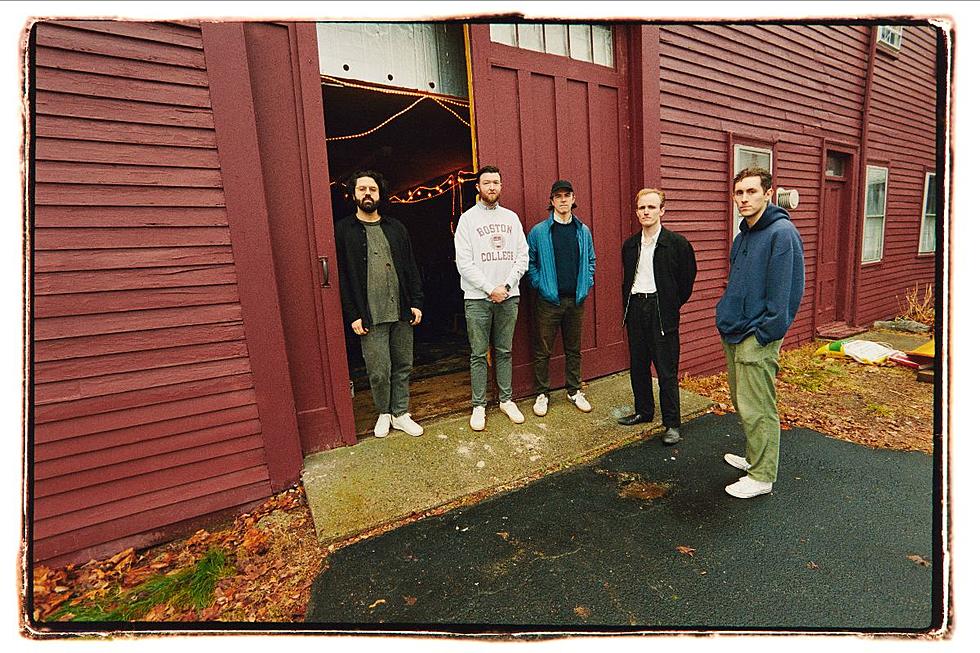As a music fan who became a music writer during the ‘00s, I heard lots of shit talk about emo. People blamed it for the downfall of rock music in the mainstream. They heaped scorn upon anyone who delivered their lyrics with a hint of drama or theatrics. The supposed couture of such bands became both a cottage industry for Hot Topic and an easy cliché for the haters.
Maybe my tastes were more Thursday than Fall Out Boy, but I bristled when emo became the butt of someone’s joke. Why was emotion bad? Paraphrasing both Rob Fleming and Rob Gordon in their respective versions of High Fidelity, pop music has always focused on your feelings. How a tune makes someone feel has been the hallmark of popular songcraft for centuries.
Hannah Ewens would tell you that critics and rock fans reviled Aughts Emo because the bigger bands cultivated very loyal female audiences. And she would be right. White male rock fans still turn into very petulant gatekeepers whenever women show even the slightest bit of interest in their specific niches. Additionally, despite the decades of rock songs about love and heartbreak, most guys prefer expressing themselves with scorn and anger. The thinking goes:
“I don’t like what’s happening. But instead of actually figuring out why I feel this way, I’m gonna get mad, lash out, and be defensive.”
Maybe it was my roots in an expressive branch of evangelical Christianity, but I liked my emotions. Most of the time. My personal religious history was rooted in guilt, self-loathing, and false perfectionism. That’s why I liked emo. I loved going to shows and belting out the lyrics at the top of my voice with a hundred other sweaty fans. It was a cathartic experience that felt like church. It was the perfect emotional release for a confused twenty-something who really needed therapy.
Emo has always helped me feel. It has never been about wallowing in my emotions for hours and days on end. Yes, I often drove around Houston playing the same album over and over again, but it helped me learn how to feel. I realized that it’s good to feel.
Emotions are healthy, especially when you embrace them and pursue healing instead of running from them.
Let’s be clear – that idea is not an original one, but it is an important one. It speaks to the core of why I enjoyed every moment of Between the Richness by Fiddlehead.

With ten songs running barely 33 minutes in length, the band’s new album on Run for Cover Records hits all of the punk-meets-emo notes my heart craves. I hear the angst of early Thrice, the energy of Husker Du, the kinesthetics of Fugazi, the creativity of The Hotelier. The melodies and arrangements set my heart ablaze, thanks to brief intros and rollicking furor. But it’s the classic verse-chorus-verse-chorus-transition-chorus format that anchors the entire project.
Each tune sets me firmly in the middle of some dingy club or basement show, plastic cups both clear and red scattered across the floor. The venue doesn’t have a proper stage, and the assembled throng circles the band lovingly. The musicians have just enough room to play their instruments and engage in their own emotional release. I know exactly where these songs belong, why they were made, and who needs to hear them. People will engage with their feelings on this night, and it will be glorious.

Fiddlehead delivers maximum impact when it leans headlong into gritty rock music. The punchy, hook-heavy riffs of Alex Dow and Alex Henery stoke the flames, especially when they lean into just the right amount of swagger. I’m also a big fan of Shawn Costa’s innovative drumming and resolute bass work of Adam Gosalves, as they capably toe the line between indulgent syncopation and straight-ahead pacing.
The true fuel for this musical fire comes from Pat Flynn. His personal lyrics and anguished bellow deliver righteous punk rock hugs in aural form. Each song builds upon the other to reach a glorious climax with “Heart to Heart,” as Flynn cultivates a strong personal connection with the listener.
He grabs you by the guts, looks you in the eye, and declares, “Life sucks. Believe me, I get it. But it can and will get better.”

For example, “Million Times” showcases a snaking guitar phrase in the verses before Flynn bellows over pummeling riffs in the chorus. With “Eternal You,” the band ramps up the tempo while guitars buzz and Costa wails on the drums. On “Down University,” Costa and Gonsalves lay down a miles-wide groove that provide Flynn, Dow, and Henery space to tear through big, snarling hooks. “Get My Mind Right” is my favorite track, as it effortlessly blends New England punk with Mid-Atlantic emo without sanding down either scene’s rough edges.

Between the Richness pulses with a powerful resonance. One that encourages you to reveal and review how you feel and why. Not only does it rip and snort without being obnoxious, but it delivers a sense of wholeness and wellness. I feel at peace listening to Fiddlehead. It’s not about nostalgia or drowning in my emotions. It’s about recognizing them, addressing them, and moving forward.
Forget the haters and feel your feelings. You’ll be better for it. That is the power of high-quality emo.


